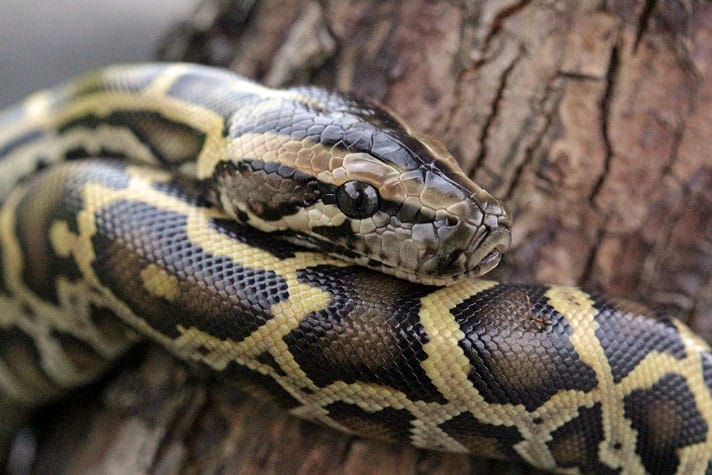Burmese pythons (Python bivittatus), vipers and cobras that were previously destined for the black market animal trade have found a refuge in the mona
Burmese pythons (Python bivittatus), vipers and cobras that were previously destined for the black market animal trade have found a refuge in the monastery of a 69-year-old Buddhist monk in Myanmar, formerly Burma. The monk, named Wilatha, keeps the reptiles at the Seikta Thukha TetOo monastery, in Yangon, (formerly known as Rangoon) the largest city in Myanmar.
Wilatha, who launched the snake rescue five years ago, told RTE News that the reptiles are brought to the monastery by residents of the city, as well as government agencies, including the city fire department. He noted that the residents are hoping to gain merit for bringing the snakes to him rather than killing or trying to sell them on the black market.
“If you kill a snake, you will suffer bad luck to your family, have a broken family, cause deadly disease and destroy business. That’s why I request my followers not to kill the snakes and hand over to me. I will shelter them temporarily on my hand to release these snakes to the wild forest later,” Wilatha told RTE News.
Burmese Python Information
“I believe that losing even one animal species will cause problems to nature. Even though we don’t know specifically about their benefit to nature, the species are helping our environment,” Wilatha said.
18-foot Burmese Python Removed From Florida Everglades
The Burmese python, an invasive species in the state of Florida, is listed as vulnerable in Southeast Asia by the International Union for Conservation of Nature. The large constricting snake is killed for its skin as well as for “folk” medicine and food. Its habitat has also been degraded over time. The species is well-established in the Florida Everglades and authorities are actively trying to reduce their populations. It is also one of the most popular of the large constricting snakes that are kept by experienced reptile keepers.



